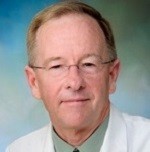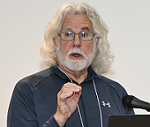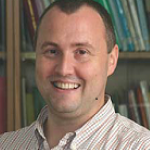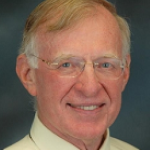About the Editors
Editor-in-Chief
 Alan D.T. Barrett, PhD
Alan D.T. Barrett, PhD
Director, Sealy Institute for Vaccine Sciences
University of Texas Medical Branch
TX, USA
Alan D.T. Barrett obtained his B.S., M.S. and PhD in the area of virology from the University of Warwick, followed by a post-doctoral fellowship in arbovirology at the London School of Hygiene and Tropical Medicine. As a leading expert in the fields of vaccine development for flaviviruses, his lab undertakes basic research and preclinical development for vaccines against various flavivirus diseases. He has made several contributions to World Health Organization activities on vaccine research, development and implementation. He is a member of the Scientific Advisory Committee, Coalition for Epidemic Preparedness Innovations (CEPI) that is developing vaccines for Ebola, Nipah, Lassa fever and MERS, the flavivirus vaccine working group of the CDC Advisory Committee on Immunization Practices and has served on many NIH study sections.
Deputy Editors
 Richard Rupp, MD
Richard Rupp, MD
Department of Pediatrics
University of Texas Medical Branch
TX, USA
Richard Rupp is the Director of the Clinical Trials Program of the Sealy Institute for Vaccine Sciences at the University of Texas Medical Branch at Galveston. He is a Professor and the Director of the Division of Adolescent and Behavioral Health within the Department of Pediatrics. He received his M.D. from Saint Louis University School of Medicine. He completed Pediatric Residency and Adolescent Medicine Fellowship in Texas at Wilford Hall Medical Center and William Beaumont AMC, respectively.
 Rick Titball, PhD, DSc
Rick Titball, PhD, DSc
Professor of Molecular Microbiology
University of Exeter
Exeter, UK
Rick Titball's principal interests lie with understanding the molecular basis of disease caused by a range of bacterial pathogens. His previous work has involved extensive studies on biothreat agents. He has a strong interest in using information on the molecular biology of pathogens to devise vaccines and have previously developed vaccines against Yersinia pestis and Clostridium perfringens toxins.
Managing Editor
 Nico Fanget, PhD
Nico Fanget, PhD
Nico obtained his PhD in bacteriology and molecular biology at Edinburgh Napier University. He then moved to scholarly publishing, first as staff editor at the Microbiology Society, then as copy editor at Nature. Nico joined the Nature partner Journals in 2016, and now manages four npj series titles.
He is based in London.
Associate Editors
 David Bernstein, MD
David Bernstein, MD
Professor
Cincinnati Children's Hospital Medical Center
Cincinnati, OH
My interest is primarily in the field of vaccinology and virology. Over the past 30 years I have contributed to the development of several vaccines; most notable rotavirus, herpes viruses and influenza and have published over 300 manuscripts in this field. I was the PI of one of the NIH funded Vaccine Treatment Evaluation Units (VTEU) for over 15 years and am also funded by the NIH to evaluate vaccines and antivirals for herpes virus infections in animal models..
 Marit van Gils, PhD
Marit van Gils, PhD
Department of Medical Microbiology and Infection Prevention
Amsterdam UMC, University of Amsterdam
Amsterdam, The Netherlands
Dr. Marit van Gils is an Associate Professor in Virology at the Amsterdam University Medical Centers in The Netherlands. Her laboratory is focused on understanding antibody responses following vaccination, and characterising how the antibodies contribute to vaccine effectiveness. She is particularly interested in broadly protective antibodies against viruses, such as HIV, Influenza virus and more recently, coronaviruses. Her team uses a wide range of molecular, virological and immunological techniques to explore early interactions between vaccines and immune cells in lymphoid tissue and to isolate monoclonal antibodies after vaccination and natural infection.
 Prof Roy A Hall
Prof Roy A Hall
School Chemistry and Molecular Biosciences, The University of Queensland
Brisbane, Queensland, Australia
A major research interest in my lab has been the study of mosquito-borne viruses with a focus on on globally important mosquito-borne pathogens, including Zika virus, West Nile virus and Chikungunya virus as well as new and emerging viruses. Indeed, our studies have led to the discovery of several new mosquito-borne viruses and spawned major projects for the development of new recombinant platforms for producing safe vaccines and diagnostics.
 Stephanie Longet, PhD
Stephanie Longet, PhD
Assistant Professor of Immunology, department "Pathophysiology and biotherapies of mucosal infections"
University of Saint-Etienne
Saint-Etienne, France
Stephanie Longet is an Assistant Professor of Immunology at the University of Saint-Etienne in France. During her PhD project at the University of Lausanne and her 5-year postdoctoral experience at Trinity College Dublin, her work focused on passive and prophylactic oral vaccine strategies to induce protective immune response at intestinal level using in vitro and preclinical models. During her 4-year postdoctoral experience at Public Health England and at the University of Oxford, she was strongly involved in the characterisation of systemic and mucosal adaptive immune responses in preclinical models and humans following SARS-CoV-2 infection and/or COVID-19 vaccination. In March 2023, she joined the University of Saint-Etienne as an Assistant Professor. Her current research interests are the development of nasal vaccine strategies against viral infections and the characterisation of mucosal memory immune responses including tissue-resident memory responses in the respiratory tract.
 Paul A. MacAry, PhD
Paul A. MacAry, PhD
Director, LSI Immunology Programme
National University of Singapore
Singapore, Singapore
Associate Professor Paul MacAry performed his post-doctoral research at Cambridge University Institute for Medical Research (CIMR), and since 2005 has been an independent investigator in the Department of Microbiology and Immunology program at the National University of Singapore (NUS). The multi-disciplinary research in his laboratory covers the entire spectrum of scientific endeavour, from basic research to industrial applications with an emphasis on antibody biology, immune repertoire mapping and protein engineering applications in infectious diseases.
 Xavier Saelens, PhD
Xavier Saelens, PhD
Professor
Ghent University and VIB
Ghent, Belgium
The research team of Xavier Saelens applies modern biotechnology methods to develop new vaccines and antivirals against important human respiratory viruses such as influenza viruses, respiratory syncytial virus, and coronaviruses. In addition, his group uses interactomics tools to gain new insights in the molecular interplay between host and viral factors.
His team pioneered the development of a universal influenza A vaccine candidate based on the viral matrix protein 2 and elucidated its mechanism of protection. His team also developed a new human respiratory syncytial vaccine candidate that is based on the small hydrophobic protein of this virus. The group also develops single domain antibodies and formats thereof as new candidate biologics to control infections by human respiratory viruses.

Veronika von Messling, Dr. med. vet.
Director General, Life Sciences
Federal Ministry of Education and Research
Berlin, Germany
Prof. Dr. von Messling's research interest lies in characterizing the pathogenesis of respiratory viruses to develop novel prophylactic and therapeutic strategies. She has been awarded various awards and prizes such as the Chercheur-boursier senior Award, FRSQ, (2011), and the Löffler-Frosch Prize, German Society of Virology (2011). She is also a member of various societies such as the European Society of Virology, Canadian Society of Microbiology and Deutsche virologische Gesellschaft.
 David H. Walker, MD, PhD
David H. Walker, MD, PhD
Department of Pathology
University of Texas Medical Branch
TX, USA
David Walker is the Director of the Center for Biodefense and Emerging Infectious Diseases. His research has elucidated mechanisms of immunity to Rickettsia and Ehrlichia, developed animal models for investigating rickettsioses and ehrlichioses and contributed to elucidating the pathology and pathophysiology of Lassa fever, Rocky Mountain spotted fever, Mediterranean spotted fever and human monocytotropic ehrlichiosis.
 Fidel P. Zavala
Fidel P. Zavala
Professor, Department of Molecular Microbiology and Immunology
Johns Hopkins University, Bloomberg School of Public Health
MD, USA
Fidel Zavala joined the Faculty at New York University School of Medicine in 1982 and in 2003 was appointed as Professor at Johns Hopkins University Bloomberg School of Public Health. His research interest focus in vaccine immunology using experimental animal models. The aim of these studies is to characterize the mechanisms of protection of vaccine-induced immune responses. Most of his research activities have centered on the characterization of protective T-cell and antibody responses against malaria parasites, using transgenic mice and genetically modified parasites.
 Petra Zimmermann
Petra Zimmermann
Department of Community Health, Faculty of Science and Medicine, University of Fribourg
Fribourg, Switzerland
Petra Zimmermann is a Clinical Scientist who is trained in Infectious Diseases and Paediatrics. She works as an A/Professor and a Paediatric Infectious Diseases Specialist at the University of Fribourg, Switzerland. During her PhD at the University of Melbourne, Australia, she investigated factors that influence immune responses to routine vaccinations in infants, as well as non-specific effects of vaccines, including these of BCG. She has also been involved in COVID-19 research in children. Dr Zimmermann leads the Microbiota and Children Laboratory (Miracle) in Fribourg and her current research focuses on the influence of the microbiome on immune and non-immune related diseases.
Advisory Editor
 Sonja Schmid, PhD
Sonja Schmid, PhD
Sonja joined Nature Communications in May 2016. She obtained her PhD in virology at the University of Freiburg, Germany. After that she studied anti-viral defense systems, focusing on innate immune signaling and the small RNA machinery, as postdoctoral fellow at Mount Sinai School of Medicine in New York City. Sonja is based in the New York office and primarily handles manuscripts in infectious diseases, including research on pathogen-host interactions, development of vaccines and therapeutics, and clinical studies.
Editorial Board Members
L. Garry Adams: Texas A&M College Station, Texas, USA
Sylvie Alonso: National University of Singapore, Singapore
Carl R. Alving: Walter Reed Army Institute of Research, Silver Spring, Maryland, USA
Peter L. Andersen: Statens Serum Institute, Copenhagen, Denmar
Bernard Arulanandam: University of Texas at San Antonio, Texas, US
David W. C. Beasley: University of Texas Medical Branch, Texas, USA
Martin Beer: Friedrich-Loeffler-Institut, Greifswald-Insel Riems, Germany
David I. Bernstein: Cincinnati Children's Hospital Medical Center, Ohio, USA
Paul L. Bigliardi: University of Minnesota, Minnesota, USA
Danny Casimiro: Sanofi Pasteur, Pennsylvania, USA
Conrad Chan: National Centre for Infectious Diseases, Singapore
Ashok K. Chopra: University of Texas Medical Branch, Texas, USA
James Crowe: Vanderbilt University, Tennessee, USA
Denise Doolan: James Cook University, Australia, Cairns, Australia
J. Stephen Dumler: Uniformed Services University for the Health Sciences, Maryland, USA
Janice Endsley: University of Texas Medical Branch, Texas, USA
Susanna Esposito: Università degli Studi di Milano, Milan, Italy
Ali I. Fattom: NanoBio Corporation, Michigan, USA
Thomas Ficht: Texas A&M University, Texas, USA
Katja Fink: ImmunoScape, Singapore
Anthony R. Fooks: Animal and Plant Health Agency (APHA), Surrey, UK
Alexander Freiberg: University of Texas Medical Branch, Texas, USA
Tong-Ming Fu: Sanofi Pasteur, Massachusetts, USA
Michael Gale, Jr.: University of Washington, Washington, USA
Adolfo Garcia-Sastre: Mount Sinai School of Medicine, New York, USA
Nathalie Garcon: Bioaster Technology Research Institute, Brussels, Belgium
Nisha J. Garg: University of Texas Medical Branch, Texas, USA
Sarah Gilbert: Jenner Institute, University of Oxford, Oxford, UK
Jaap Goudsmit: University of Amsterdam, Amsterdam, Netherlands
Barney S. Graham: NIH, Maryland, USA
Beth-Ann Griswold Coller: Merck Research Laboratories, New Jersey, USA
Joachim Hombach: World Health Organization, Geneva, Switzerland
Tetsuro Ikegami: University of Texas Medical Branch, Texas, USA
Ken J. Ishii: Osaka University, Osaka, Japan
Nicholas Jackson: Coalition for Epidemic Preparedness Innovations (CEPI), London, UK
Kathrin Jansen: Pfizer Vaccine Research, New York, USA
Stefan Kappe: Seattle Biomedical Research Institute, Washington, USA
David C. Kaslow: ATH, Seattle, Washington, USA
Stephen Kent: University of Melbourne, Melbourne, Australia
Janine Kimpel: Medical University of Innsbruck, Innsbruck, Australia
Dennis M. Klinman: National Cancer Institute, NIH, Maryland, USA
Eiji Konishi: Osaka University, Osaka, Japan
Margaret Liu: Karolinska Institute, Stockholm, Sweden
Shan Lu: University of Massachusetts Medical School, Massachusetts, USA
Mary Marovich: National Institute of Allergy and Infectious Diseases, NIH, Maryland, USA
Peter Mason: Regeneron Pharmaceuticals, Tarrytown, New York, USA
Jere W. McBride: University of Texas Medical Branch, Texas, USA
Philip Minor: National Institute for Biological Standards and Control, Potters Bar, UK
Thomas P. Monath: Crozet BioPharma, Massachusetts, USA
Kathleen M. Neuzil: University of Maryland School of Medicine, Maryland, USA
Johanna Olweus: Department of Cancer Immunology, Institute for Cancer Research, Oslo University Hospital Radiumhospitalet and University of Oslo, Oslo, Norway
Walter Orenstein: Emory University, Georgia, USA
Slobodan Paessler: University of Texas Medical Branch, Texas, USA
Guy H. Palmer: Washington State University, Washington, USA
Daniel Paris: Mahidol Oxford Research Unit, Bangkok, Thailand
Kevin Pethe: Nanyang Technological University, Singapore
Stanley Plotkin: University of Pennsylvania, Vaxconsult, Pennsylvania, USA
Maarten Postma: University of Groningen, Groningen, Netherlands
Bali Pulendran: Stanford University, California, USA
Cheng-Feng Qin: Beijing Institute of Microbiology and Epidemiology, Beijing, China
Rino Rappuoli: GSK Vaccines, Siena, Italy
Steven G. Reed: Infectious Diseases Research Institute, Washington, USA
Guus Rimmelzwaan: University of Veterinary Medicine, Center for Emerging Infections and Zoonoses, Hanover, Germany
Jai Rudra: Washington University in St. Louis, Missouri, USA
Robert Sauerwein: Radboud University Medical Center, Nijmegen, Netherlands
Alexander Schmidt: Bill and Melinda Gates Foundation, Massachusetts, USA
Alessandro Sette: La Jolla Institute for Allergy and Immunology, California, USA
Pei-Yong Shi: University of Texas Medical Branch, Texas, USA
John Shiver: Sanofi-Pasteur Vaccines, Swiftwater, Pennsylvania, USA
Mark K. Slifka: Oregon Health & Science University, Oregon, USA
Jon Smith: VLP Therapeutics, Maryland, USA
Lynn Soong: University of Texas Medical Branch, Texas, USA
J. Erin Staples: Centers for Disease Control, Colorado, USA
Geraldine Taylor: Pirbright Institute, Woking, UK
Dirk Teuwen: Union Chimique Belge (UCB), Brussels, Belgium
Ralph A. Tripp: The UGA college of Veterinary Medicine, Georgia, USA
Takafumi Tsuboi: Ehime University, Ehime, Japan
Sylvia van den Hurk: University of Saskatchewan, Saskatchewan, Canada
Kirsten Vannice: Consultant, Washington, USA
Hengliang Wang: Beijing Institute of Biotechnology, Beijing, China
Scott C. Weaver: University of Texas Medical Branch, Texas, USA
David B. Weiner: University of Pennsylvania, Pennsylvania, USA
Fidel Zavala: ohn Hopkins Bloomberg School of Public Health, Maryland, USA
Qinjian Zhao: Xiamen University, Xiamen, Fujian, China
Interested in joining the journal team?
If you are interested in joining the journal as an Editorial Board Member or Associate Editor, please complete this form. Associate Editors are part of the editorial team that handle manuscripts, while Editorial Board Members are regular reviewers and are consulted for ad hoc advice. We will contact you if your expertise meets the needs of the journal.
Nature Portfolio journals are committed to promoting practices that support diversity, equity and inclusion in science communication and publishing, and we strongly encourage gender, race, ethnic, geographic, career stage and other diversity in our journal teams. Our in-house staff will use your information only for the purposes of identifying new editorial team or board members. Please contact the journal by email if you would like to remove your information from these records.
Please note that we are not able to respond to all applicants.
